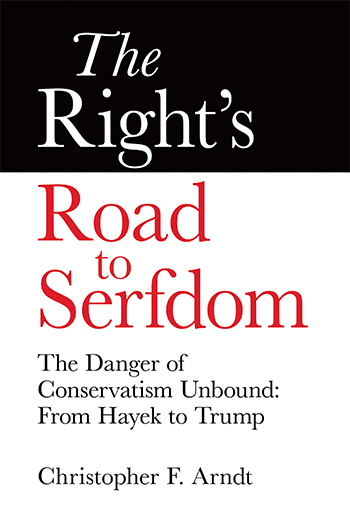
26 May Book Review: “The Right’s Road To Serfdom”
Mountainfilm’s new initiative, announced in December 2016, is The New Normal, a community-wide, grassroots effort to battle climate change and help bring the Telluride region to carbon neutrality – no small challenge because Telluride has a carbon footprint twice the national average. In the spirit of The New Normal, Mountainfilm is partnering with local experts and nonprofits such as San Miguel Power Association, EcoAction Partners, and the Pinhead Climate Institute to create actionable steps for The New Normal.
Chris Arndt is one of the co-founders of the Pinhead Climate Institute (with Pinhead’s executive director Sarah Holbrooke and scientist Adam Chambers.)
Chris Arndt began his career in 1992 as a Research Assistant at Environmental Risk Sciences, Inc., a consulting firm based in Washington D.C. In 1994, he moved to New York City and from 1995 to 2010, he worked as an equity analyst, portfolio manager, and a partner in the firm Select Equity Group, Inc.
Arndt contributed to the significant growth of the firm over that 15-year period. As an equity analyst, he focused mostly on life science and healthcare companies.
In 2010, Arndt left Select Equity Group, Inc. to turn his attention to public policy issues, such as accelerating the adoption of clean energy. He has served as Director of the New York Chapter of Environmental Entrepreneurs (E2) and currently serves on the board of the NRDC Action Fund.
At Wesleyan University, Arndt studied economics, history, and political theory, graduating with honors in 1992.
In 2016, Chris Arndt wrote his first book:” The Right’s Road to Serfdom,” reviewed below by Clint Viebrock.
Bottom line: Arndt’s book is hard-hitting, fast-paced, and scholarly, without tipping over into excessive pedagogy turf. “The Right’s Road to Serfdom” is also absolutely necessary if we are to understand why our country is where it is and, by extension, why we need a New Normal in Telluride and throughout Colorado and the nation.
Find “The Right’s Road to Serfdom” at Telluride’s Between the Covers Bookstore or if you are not in town, go here.
Arndt’s book has its roots in the 1970s. Alarmed by Richard Nixon’s tough new restrictions aiming to help the environment, oil, banking, and industrial titans banded together to fight anything that would increase their costs and decrease their profits. Among those tycoons were the infamous Koch brothers, also the DeVoss family. They intimidated rivals, sued and blackmailed anyone who got in their way, including relatives, and made plans that involved lowering taxes on the wealthy, decreasing the amount of money the U.S. government spent on health, education, and welfare and set about polluting our air and water. Truth is there might no need for a New Normal, if these so-called conservatives had not hatched their nefarious plots.
Through their actions, these individuals co-opted the Right, polluted political discourse – and our environment.
“At least for environmentalists, the odd thing about conservatives in recent decades has been their lack of interest in conservation, their willingness to let the physical world change in radical ways. This (Ardt’s) insightful and interesting book helps explain that conundrum,” Bill McKibben, author of “Earth: Making a Life on a Tough New Planet.”


Chris Arndt
“The Right’s Road to Serfdom:, The Danger of Conservatism Unbound: From Hayek to Trump”
In his 1940s book, The Road to Serfdom, Friedrich Hayek wrote: “Few are ready to recognize that the rise of fascism and nazism was not a reaction against the socialist trends of the preceding period but a necessary outcome of those tendencies.”
With those words, Hayek became the darling of the political Right in the U.S. – but they neglect to pay attention to Hayek’s warning: “Is there a greater tragedy imaginable than that, in our endeavor consciously to shape our future in accordance with high ideals, we should in fact unwittingly produce the very opposite of what we have been striving for?”
Christopher Arndt opens “The Right’s Road to Serfdom” with the discussion above. Throughout the book he returns to Hayek to make the point that extremism on either the Right or the Left necessarily leads to the loss of political freedom and individual rights. Ironic given that the American Right professes to stand for a free society.
Similarly, the Right seems to believe that another conservative hero, Ronald Reagan, said “…the best government is the least government.”
Reagan’s actual words (emphasis mine), from his first inaugural address: “In this present crisis, government is not the solution to our problem; government is the problem.”
In the same speech Reagan said it was not his intention to do away with government, but to make government work for us. That part seems to be ignored by conservative wing of the Republican Party today. Though he finished “The Right’s Road to Serfdom” before the Trump election, Arndt mentions some of the major administration players: Rick Perry, who once in a campaign debate vowed to shut down the Energy Department, which he now heads. Only he couldn’t remember its name. Or how about Scott Pruitt, who has spent much of his career up to now suing the EPA, which is now his agency.
In the Introduction to the book, Arndt brings up the concept he terms “the freedom fraud”, described as a misconception, and more, the promotion of this misconception: “… the very things conservatives by temperament often promote as political freedom actually undermine political freedom.”
Freedom fraud figures prominently throughout this book.
In the first four chapters the author lays out and draws contemporary parallels to four conservative traits Hayek considered inimical to classic liberalism:
- A greater concern with who is governing than with the constraints on those who govern
- Strong moral convictions that trump (!) political principles
- A lack of interest in new ideas, and obscurantism when new ideas or empirical findings appear to threaten cherished values
- A tendency toward imperialism
Does anything here sound familiar with regard to today’s politics in Republican-controlled Washington?
The final three chapters speak initially of how special interests first benefit, then use the money and influence gained thereby to further influence the system in their favor. In “Dark Money,” Jane Mayer speaks of the money spent by organizations such as those supported by the Kochs and the DeVoss family not just to influence elections and policy, but to fund educational programs to “grow” a generation of scholars and thinkers to enhance conservative philosophy.
Chris Arndt, then a college freshman, was accepted to participate in a week-long summer program at the Institute for Humane Studies at George Mason University, outside Washington, D.C. What he found was a program to help corporations fight regulation. He later learned that the Koch brothers were major funders of the program and that the purpose was nothing short of changing how people think about government.
So far, so educational.
Next we need a way of identifying the problem. Arndt calls this the “freedom-fraud” test. And finally, a way to get past the freedom fraud: we must form a consensus that there are areas of public life that can be best done by government. We may not all agree on which these governmental functions are, but we must re-learn the capacity for compromise, which the author argues, effectively, we have lost in this winner-take-all political climate.
Arndt often refers to contemporary sources such as Jane Mayer (“Dark Money”), and Jonathan Chait, so references to the efforts by the Koch brothers to rewrite the rules to benefit their businesses, and discussions about Pay-As-You-Go are familiar, but not repetitive.
“The Road to Serfdom” is a serious book that reads like a novel. (Mayer’s book is encyclopedic in its documentation of the efforts of the Kochs and others to influence how government works.) Arndt includes enough detail to tell the story effectively, but uses his extensive footnotes to fully flesh out his theses.
Were you surprised, shocked, disappointed that Trump won the election? In “The Right’s Road to Serfdom,” Chris Arndt makes the case that shows the outcome to be almost inevitable – as a country we have been heading in this direction for decades. But the book is also hopeful: Arndt’s prescription for the antidote is within our power. We need to see through the rhetoric; we must embrace a political life of principles; we must understand that restraints on who is governing are more important than who is governing.
I believe Christopher Arndt would agree: We must frame our discussions and actions in terms of what we want for outcomes, instead of only being against. (See George Lakoff, Don’t Think of an Elephant) As evidence, as mentioned in the introduction to this review, Arndt is one of the co-founders of the afore-mentioned Pinhead Climate Institute in Telluride.


Douglas Tooley
Posted at 09:59h, 27 MaySounds like a great read. Any chance we could get an author talk?
admin
Posted at 07:39h, 01 JuneWe do have access to the author, Christopher Arndt. An interview with him would be a great idea. Thanks for the suggestion.